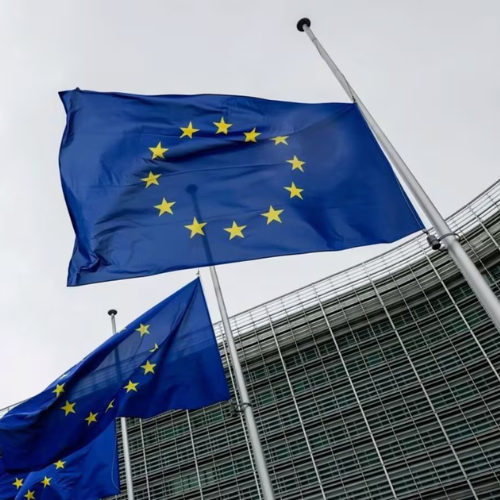The European Union (EU) has raised concerns over certain Indian companies allegedly supplying crucial goods to Russia in violation of G7 sanctions. These supplies, which could have military applications, are believed to be helping Russia in its ongoing conflict with Ukraine. The EU has been working to prevent these goods from reaching Russia, and has shared its findings with the Indian government, but the matter remains unresolved.
EU’s Sanctions Envoy Visits India
David O’Sullivan, the EU Sanctions Envoy, visited India in October 2024 to discuss the issue of goods flowing from India to Russia. His mission was to find ways to stop the illicit supply of sensitive materials that could be used for military purposes. O’Sullivan said he was seeking “systemic solutions” with Indian authorities to ensure that these critical items do not end up in Russia, where they could strengthen the country’s military capabilities.
Though India has yet to respond directly to the accusations, it has consistently maintained that it does not accept unilateral sanctions, such as those imposed by the EU and the United States. India recognizes only those sanctions that are imposed by the United Nations (UN), viewing them as legitimate and binding. This stance puts India at odds with the G7 nations, which have imposed their own sanctions against Russia following its invasion of Ukraine.
Indian Companies Accused of Violating Sanctions
The EU has identified two Indian companies, Si2 Microsystems Pvt Ltd and Innovio Ventures, as being involved in supplying restricted goods to Russia. These companies are already under “specific export restrictions,” meaning they are prohibited from exporting certain goods without special permission.
EU Sanctions Against Iranian Shipping Companies Amid Ukraine Crisis
The products in question are classified as “dual-use” goods, meaning they can be used for both civilian and military purposes. These include advanced semiconductors and machine tools, which are crucial for the development of military technology. According to the EU, these goods are being diverted to Russia, despite the sanctions intended to prevent such supplies
In response to the allegations, India’s Ministry of External Affairs (MEA) has argued that none of the accused companies have broken any Indian laws. India’s position is that it has a strong regulatory framework in place to control the export of sensitive technologies. The country is also a member of international export control regimes such as the Wassenaar Arrangement and the Missile Technology Control Regime, which are meant to prevent the proliferation of military goods.
India has asked the EU to provide more details regarding the allegations, but so far, there has been no formal response from the Indian government. The dispute over the supply of goods to Russia continues, as both sides try to address the issue.
Impact of Sanctions on Russia
The EU has emphasized that the sanctions imposed on Russia are having a significant impact on its military operations. According to the EU, Russia is now paying much higher prices for critical items, such as semiconductors and second-hand machine tools. These goods are essential for maintaining and improving military equipment. The increased costs suggest that Russia’s access to these items has been severely restricted by the sanctions.
Africa Emerges as Diamond Power Amidst G7 Sanctions on Russia
The EU believes that these measures are weakening Russia’s ability to sustain its military efforts. The sanctions have targeted key sectors, including technology and defense, with the aim of disrupting Russia’s military-industrial complex. By making it more difficult for Russia to obtain advanced technology and equipment, the EU hopes to limit its ability to continue the war in Ukraine.
In addition to the sanctions already in place, the EU is preparing its 15th package of sanctions, which may include new measures targeting Russian ships and entities that help supply Russia with military goods. The aim of these new sanctions is to further disrupt Russia’s access to critical items that enhance the precision and effectiveness of its weapons.
The EU has made it clear that it will continue to work on shutting down illicit procurement networks that help Russia acquire banned goods. The EU’s goal is to weaken Russia’s military capacity by cutting off its access to the international supply chain for crucial technologies.
For now, the issue between the EU and India remains unresolved. While the EU is focused on ensuring that the sanctions against Russia are enforced, India maintains that it has not violated any laws and that it does not accept unilateral sanctions. The two sides continue to discuss the matter, with no clear resolution yet in sight.


